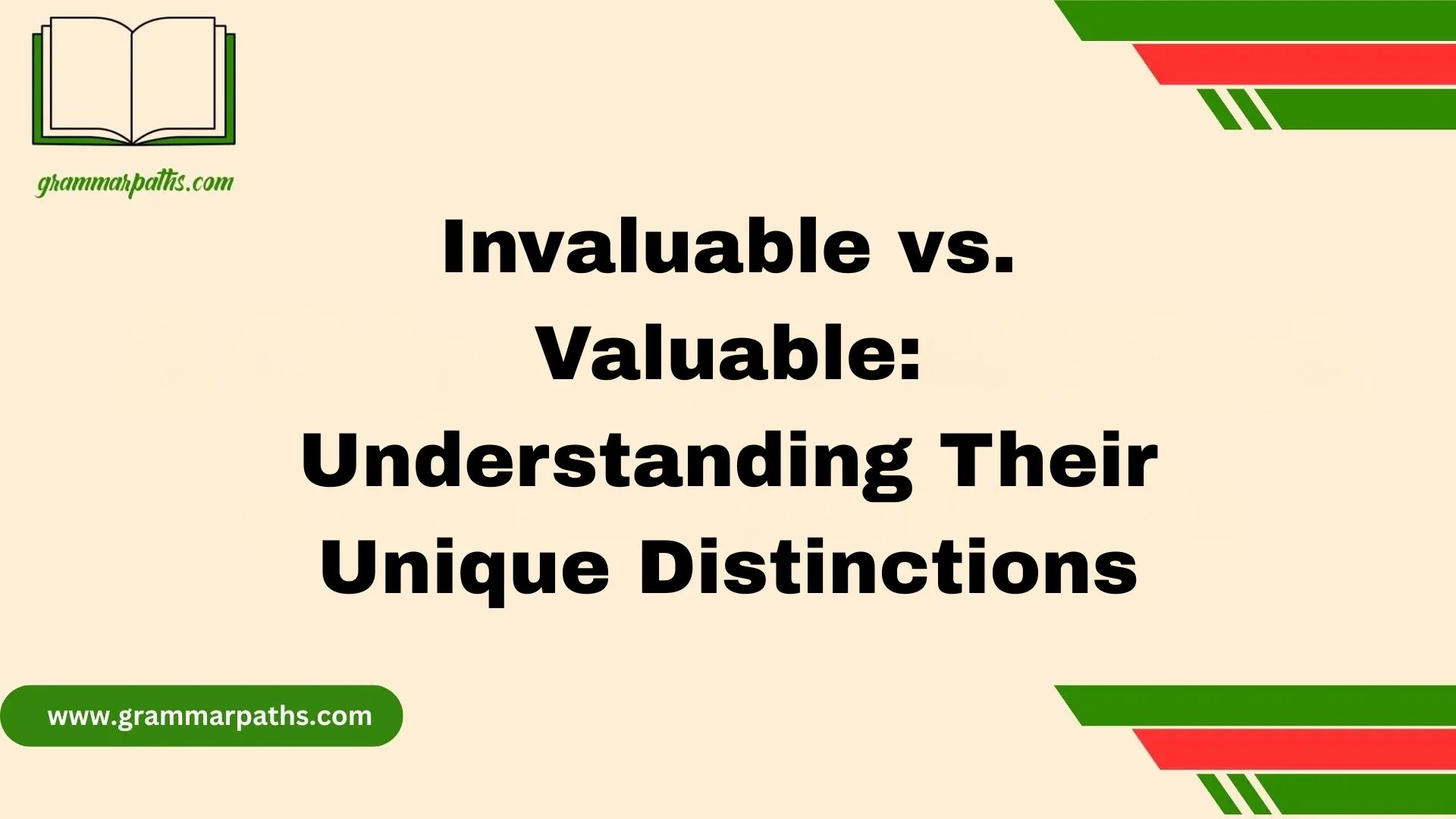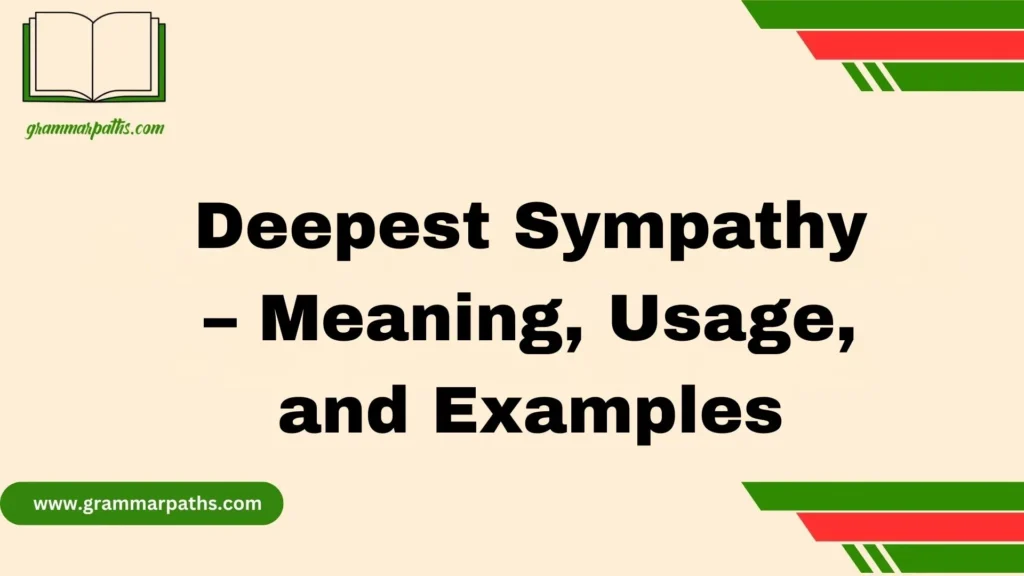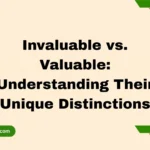When I first studied English, I realized how subtle a single word can be. Small shifts in how we perceive worth make all the difference between calling something invaluable or valuable. For example, in daily conversation, business, or writing, many people make the mistake of assuming they mean the same thing. That miscommunication changes the tone and message, leading to errors even for a confident speaker. A detailed guide or personal practice helps you explore correct definitions, usage, and the emotional impact more deeply. I’ve found that being smart about alternatives and choosing the right word for the situation shows clarity and skill.
In my own work, I noticed that calling time “valuable” highlights its high worth, tied to money or a price. But calling someone’s support, advice, or love “invaluable” means it’s not just worth something—it’s too great to measure. The histories of these words remind us that it’s about choosing the most precise expression to avoid confusion. Whether in a formal setting or a personal one, the correct choice marks you as a communicator who truly understands the language at its core. When I pay attention to this balance, I feel more natural and effective in expressing ideas.
Core Definitions and Meanings
What “Valuable” Really Means
The word valuable describes something with practical, monetary, or personal worth. It can be tangible, like jewelry, or intangible, like advice. When we call something valuable, we mean it has a clear measure of worth—either financial or functional.
Examples of valuable things include:
- A diamond ring with market value
- A skill like coding or public speaking
- Time-saving tools or resources
- Personal items that carry emotional importance
In business, companies often describe data, customer feedback, or industry connections as valuable because they provide measurable benefits.
Illustrative sentence:
- “Her insights during the meeting were incredibly valuable to the team’s decision-making.”
What “Invaluable” Really Means
The term invaluable goes beyond the measurable. It means something is so precious or essential that no amount of money can capture its worth. It emphasizes pricelessness rather than calculable value.
You might call a family heirloom invaluable because of its sentimental connection. Similarly, a mentor’s guidance or a strong friendship can be invaluable since their impact cannot be bought or replaced.
Illustrative sentence:
- “The support of close friends during tough times is truly invaluable.”
Key Differences Between Valuable and Invaluable
Although both words suggest worth, the nature of that worth differs. Here’s a clear breakdown:
| Aspect | Valuable | Invaluable |
| Definition | Worth money, useful, beneficial | Priceless, beyond measurable worth |
| Measurement | Can often be quantified in dollars or utility | Cannot be measured or replaced |
| Examples | Gold, tools, data, professional skills | Love, trust, health, once-in-a-lifetime opportunities |
| Tone of Use | Practical, grounded | Emphatic, emotional, dramatic |
| Contexts | Business, trade, skills, property | Personal growth, relationships, historical treasures |
In short: valuable is measurable, while invaluable is immeasurable.
Etymology and Word Origins
Roots of “Valuable”
The word valuable comes from the Latin root valere, which means “to be strong” or “to be worth.” It passed into Old French (valoir) before entering English in the late Middle Ages. Early usage centered on monetary and practical worth, and that meaning has stuck firmly.
Roots of “Invaluable”
“Invaluable” emerged in the 16th century. Its construction uses the Latin prefix “in-” (not always meaning “not”). In this case, it emphasizes impossibility of valuation rather than negation. So, instead of meaning “not valuable,” it means “so valuable it defies calculation.”
Quick clarification:
- “In-” sometimes negates: invisible = not visible.
- “In-” sometimes intensifies: inflammable = easily flammable, invaluable = beyond valuation.
This nuance explains why the word feels confusing. The prefix shifts meaning based on context.
Usage in Context
How Writers and Speakers Use “Valuable”
“Valuable” is common in professional and everyday settings. Writers and speakers use it when they want to highlight usefulness or measurable benefit.
Examples in phrases and idioms:
- “Valuable asset” (finance)
- “Valuable time” (emphasizing importance of time)
- “Valuable lesson” (personal growth)
Sentence example:
- “She gained valuable experience during her internship.”
How “Invaluable” Appears in Real Language
“Invaluable” carries more emotional weight. It often appears in contexts where something feels irreplaceable. Writers lean on it to amplify meaning.
Common collocations:
- “Invaluable resource”
- “Invaluable advice”
- “Invaluable contribution”
Sentence example:
- “Volunteers play an invaluable role in supporting communities after disasters.”
Illustrative Sentences and Examples
Sentences with Valuable
- “A college degree can be a valuable tool in building a career.
- “He offered valuable suggestions to improve the project.”
- “This watch is valuable because of its craftsmanship and materials.”
Sentences with Invaluable
- “Her encouragement was invaluable during my recovery.”
- “The museum holds invaluable manuscripts from ancient times.”
- “Mentorship is invaluable for young professionals entering the workforce.”
Synonyms and Related Words
Synonyms for “Valuable”
- Worthwhile
- Useful
- Beneficial
- Profitable
- Precious
- Rewarding
Example:
- “The training proved worthwhile and valuable for the new employees.”
Synonyms for “Invaluable”
- Priceless
- Irreplaceable
- Essential
- Critical
- Indispensable
Example:
- “The firefighters’ quick action was invaluable and indispensable in saving lives.”
Common Misconceptions and Mistakes
- Thinking “invaluable” means “not valuable.”
- The prefix “in-” causes confusion. Remember, it sometimes intensifies rather than negates.
- The prefix “in-” causes confusion. Remember, it sometimes intensifies rather than negates.
- Using the words interchangeably.
- While both show worth, their nuance differs. Calling a friend “valuable” doesn’t capture the depth of calling them “invaluable.”
- While both show worth, their nuance differs. Calling a friend “valuable” doesn’t capture the depth of calling them “invaluable.”
- Overusing “invaluable.”
- Because of its intensity, use it selectively for maximum impact.
- Because of its intensity, use it selectively for maximum impact.
Example of misuse:
- “This pen is invaluable.” (Unless it’s historic or emotionally priceless, “valuable” fits better.)
Practical Guidance: Choosing the Right Word
Here’s a quick checklist to help:
- Ask yourself: Can it be measured in money or utility?
→ If yes, use valuable. - Does it feel beyond price or irreplaceable?
→ Use invaluable. - Is it for business or professional tone?
→ “Valuable” is usually the better choice. - Is it personal, emotional, or dramatic?
→ “Invaluable” works best.
Memory trick:
Think of “invaluable” as meaning “so valuable you can’t put a price on it.”
Case Studies
Case Study 1: Business Context
A company calls its customer database valuable because it can be quantified and sold. But the trust customers place in the brand is invaluable, as no price tag can replace it.
Case Study 2: Personal Life
A grandmother’s wedding ring has a valuable market price. Yet to her family, it’s invaluable because of its emotional legacy.
Case Study 3: History
The Declaration of Independence in the United States has a paper-and-ink cost (valuable in materials). Yet as a symbol of freedom and identity, it’s invaluable.
Conclusion
The difference between invaluable and valuable is more than just a word choice—it’s about how we perceive worth and express it in daily life. Using the correct term can change the tone of your message, help you avoid confusion, and show that you truly understand the language at its core. Whether in business, conversation, or writing, choosing wisely lets you be a confident communicator who makes the right choice in any situation.
FAQs
Q1: Does “invaluable” mean the same as “not valuable”?
No, “invaluable” does not mean worthless. It means “too valuable to measure,” often used for things like love, support, or advice.
Q2: When should I use “valuable”?
Use “valuable” when referring to something with high worth, like time, money, or resources that carry a clear price.
Q3: Why do people confuse these words?
Because of subtle shifts in vocabulary and usage, many people make the mistake of treating them as the same. This miscommunication changes the emotional impact of your message.
Q4: How can I remember the difference?
Think of “valuable” as useful or costly, while “invaluable” is beyond value. A detailed guide or practice in different settings helps you explore the definitions more deeply and become a smart speaker.
Q5: Does context matter when choosing between them?
Yes, context is key. In a formal setting, the precise choice ensures professionalism, while in a personal context, it reflects sincerity and connection.

Mia Rose is the passionate writer and founder of GrammarPaths.com, a resource dedicated to helping learners master English grammar, idioms, and writing skills with ease. With a deep love for language and years of experience in teaching and content creation, Mia simplifies complex grammar rules into clear, practical guides that readers can instantly apply.












